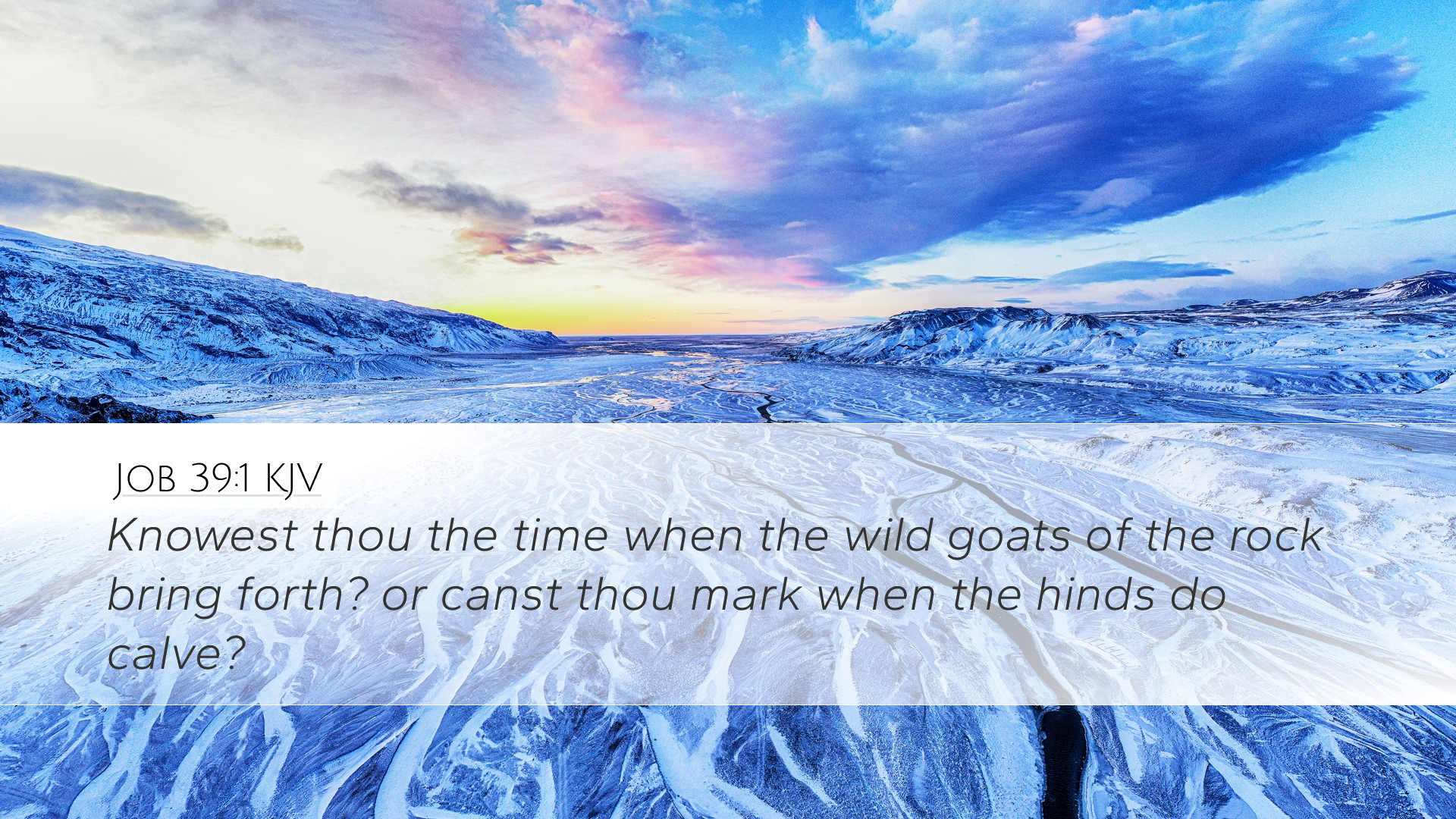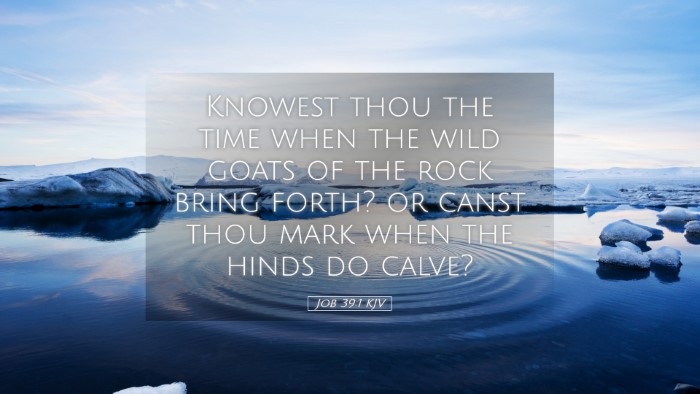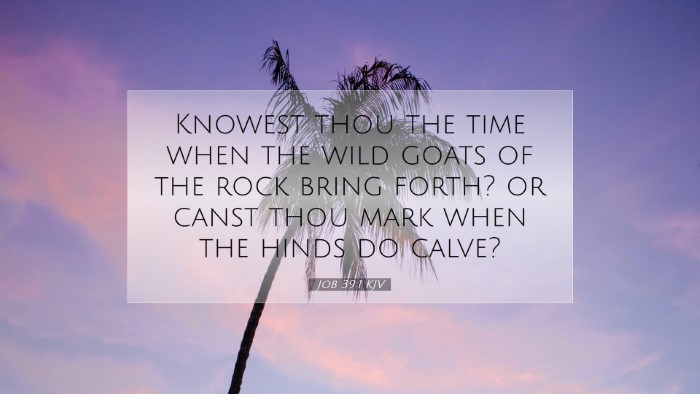Old Testament
Genesis Exodus Leviticus Numbers Deuteronomy Joshua Judges Ruth 1 Samuel 2 Samuel 1 Kings 2 Kings 1 Chronicles 2 Chronicles Ezra Nehemiah Esther Job Psalms Proverbs Ecclesiastes Song of Solomon Isaiah Jeremiah Lamentations Ezekiel Daniel Hosea Joel Amos Obadiah Jonah Micah Nahum Habakkuk Zephaniah Haggai Zechariah MalachiJob 39:1
Job 39:1 KJV
Knowest thou the time when the wild goats of the rock bring forth? or canst thou mark when the hinds do calve?
Job 39:1 Bible Commentary
Commentary on Job 39:1
Job 39:1 presents an intriguing exploration of God's creation and the inherent wisdom of the natural world. It reads:
"Knowest thou the time when the wild goats of the rock bring forth? Or canst thou mark when the hinds do calve?" (KJV)
Contextual Overview
This verse occurs during a section where God addresses Job directly, challenging him to consider the wonders of creation and to reflect on his own limitations. In this discourse, God shifts the focus from human suffering and inquiry to divine wisdom and providence manifested in nature.
The Significance of Wild Goats and Hinds
The mention of wild goats and hinds is emblematic and serves multiple purposes. Here we delve into the interpretations provided by esteemed commentaries.
-
Matthew Henry's Commentary:
Henry suggests that this verse emphasizes God's intimate knowledge of creatures and the order in their reproduction. He highlights that wild goats signify strength and independence, representing humans who often act outside of the law, yet even they are under divine watch. The difficulty of humans understanding the creation process, which God oversees, illustrates our limited perspective compared to divine omniscience.
-
Albert Barnes' Notes on the Bible:
Barnes emphasizes the inquiry's rhetorical nature, highlighting that God asks Job whether he possesses knowledge of the birthing processes of these creatures. This serves to showcase God's omniscience and invites Job to acknowledge the vastness of nature's complexity, which is far beyond human reckoning.
-
Adam Clarke’s Commentary:
Clarke notes that God is pointing Job toward the realities of nature to humble him. By asking if Job knows when these animals give birth, God implies that Job does not have the insight needed—not only into the animal kingdom but into the ways of the world and the divine. Clarke contends that this acknowledgment of one's limitations is the first step toward true wisdom.
Theological Implications
The theological implications of Job 39:1 speak to the nature of God as the sovereign Creator. God's questions illustrate several profound truths:
-
The Sovereignty of God:
God's authority and mastery over creation demonstrate that He governs the cycles of life. He knows all, including the times and seasons of all creatures, suggesting a divinely ordered universe.
-
The Limitations of Human Knowledge:
This verse highlights the limitations inherent in human understanding. Despite advancements in knowledge, there remain essential truths about life and nature that elude even the wisest of scholars.
-
The Invitation for Humility:
The rhetorical questions posed by God serve to remind us of our smallness in the grand narrative of creation. They encourage a posture of humility before an omniscient Creator.
Practical Applications for Pastors and Scholars
This exploration of Job 39:1 yields several practical applications for those in pastoral roles and academic theological study:
-
Encouraging Wonder in Creation:
Pastors can challenge their congregations to engage with the natural world as a means of understanding God's character. Reflecting on the complexity of life can be an avenue to reveal God's wisdom.
-
Facilitating Humility in Leadership:
This text serves as a reminder that leaders carry the weight of decisions yet must always reflect on their limitations and dependence on divine wisdom.
-
Fostering Deep Theological Reflection:
Scholars should consider how this verse reflects the interplay between God's sovereignty and human agency. Engaging with such texts can deepen one’s understanding of the nature of God in relation to creation.
Conclusion
In summary, Job 39:1 serves as a profound reminder of the wisdom, knowledge, and order inherent in God's creation. It humbles humanity while inviting an acknowledgment of the divine mind at work in the world. As pastors, students, and scholars reflect on this verse, they are encouraged to consider their role within the narrative of creation and the necessity of seeking God’s wisdom in all disciplines of life.


